Source: www.rucriminal.info
Mikhail Fridman was arrested on December 1 in London for money laundering and then released on bail.
The National Crime Agency has officially announced that it has carried out a major operation to arrest a wealthy Russian businessman on suspicion of offenses including money laundering, conspiracy to defraud the Interior Ministry and conspiracy to testify falsely.
A 58-year-old man (Friedman) was arrested on Thursday (December 1) at his multi-million dollar residence in London by officers from the NCA anti-kleptocracy cell.
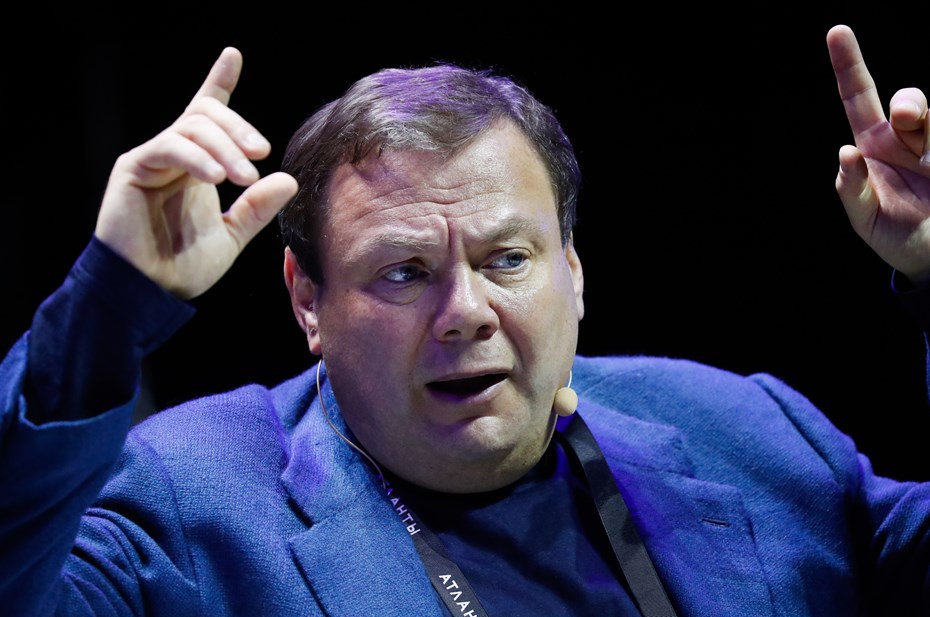
A 35-year-old man who worked on the premises was arrested nearby on suspicion of money laundering and obstruction of an NCA employee after he was seen leaving the address with a bag that was found to contain several thousand pounds of cash.
The third man, 39, the former boyfriend of the businessman's current partner, was arrested at his home in Pimlico, London, for crimes including money laundering and conspiracy to commit fraud.
More than 50 officers participated in the operation on the businessman's London property. A number of digital devices and a significant amount of cash were found after extensive searches by NCA investigators.
All three were interviewed by the NCA and released on bail.
Graham Biggar, CEO of the NCA, said: “The NCA anti-kleptocracy cell, launched just this year, has made significant progress in investigating the potential criminal activities of the oligarchs, the professional service providers who support and assist them, and those associated with Russian regime. We will continue to use all the forces and tactics available to us to eliminate this threat.”
These are not the first cases when Friedman is under interrogation, including in connection with suspicion of money laundering. True, all the past times this happened in Russia, where the money and connections of the oligarch immediately worked. Rucriminal.info will remember these cases.
Somehow, Fridman and his friend, Prime Minister Mikhail Kasyanov, laid eyes on the objects of the Federal Security Service - Sosnovka-1 (the former state dacha of the Politburo member of the Central Committee of the CPSU Mikhail Suslov) and Sosnovka-3 (the former state dacha of the General Secretary of the Central Committee of the CPSU Konstantin Chernenko). The then Prime Minister Kasyanov organizes the privatization of objects, they go to Fridman's structures at the right price, and he gives one state dacha to Kasyanov.
In January 2003, the Prime Minister signed a decree on the transfer of Sosnovka from the Federal Security Service to the Ministry of State Property in order to assign it to FSUE VPK-Invest. This meant that in the future state dachas could be privatized.
Representatives of Alfa-Bank hurriedly assessed state dachas through a "related" structure. It is clear for meager amounts. After that, in December 2003 - January 2004, the objects were put up for auction. Only structures affiliated with Alfa-Bank took part in the auction. For this auction, a winning firm was needed, registered with Friedman. He instructed the head of the legal service of Alfa-Bank, Vsevolod Kusov, to do so. And he did not come up with anything better than to take Veltex, controlled by Alfa and used in money laundering schemes with Sodbiznesbank, and transfer it to Fridman.
As a result, Sosnovka-3 went to Veltex LLC for 10.1 million rubles, the sole founder of which was Mikhail Fridman. And Sosnovka-1 for 11.1 million - Amelia LLC (also controlled by Alfa). The investigation found that the budget did not receive 186.4 million rubles from the deal for Sosnovka-3, and 190.6 million for Sosnovka-1. The market value of dachas in general is about 250 million - not rubles, but dollars. After all, we are talking about entire complexes. Sosnovka-1 includes 26 real estate objects located on 11.5 hectares of land.
"Sosnovka-3" is 23 objects located on 5.6 hectares. Both dachas have individual exits to the Moscow River.
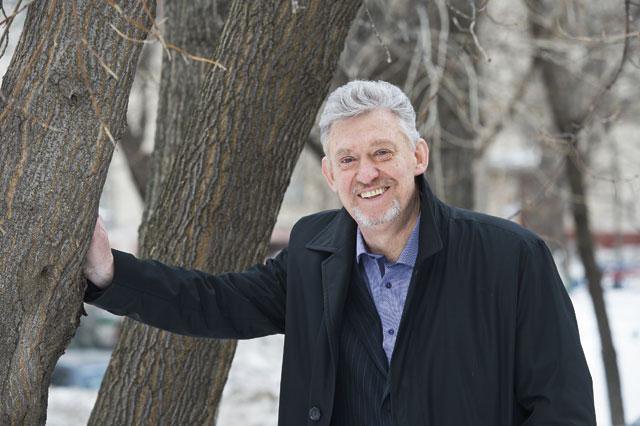
During the investigation of the case of embezzlement and money laundering through Sodbusinessbank, it turned out that the Veltex company was used in the schemes, the only founder of which was Fridman.
Friedman was interrogated, and searches were carried out in Alfa. Friedman tried to solve the problem through Andrei Khorev, then deputy head of the DEB of the Ministry of Internal Affairs of the Russian Federation. Part of the materials on Veltex and Alfa-Bank was in the DEB. Two employees of the DEB, for whom they were assigned, urgently disappeared - officially one went on sick leave, the other - on vacation. But they couldn't find them at all. On this basis, the documents were not received by the Investigative Committee under the Ministry of Internal Affairs of the Russian Federation from the DEB.
Here the Minister of Internal Affairs Rashid Nurgaliyev had to personally intervene in the situation. And immediately the materials of the check on Alfa-Bank were found. It turned out that they were at the deputy head of the DEB of the Ministry of Internal Affairs of the Russian Federation, Andrey Khorev. But by that time, the go-ahead had already come from above to stop work on Fridman.
At the disposal of Rucriminal.info there are case materials on state dachas, we will introduce them to our readers.
So, as follows from the testimony of the former CEO and the Evikhon oil company Koptenko, who were at the disposal of rucriminal.info, in late 1994 - early 1995, Boris Yeltsin personally turned to him for help. The head of state asked to finance the construction of a sanatorium for FSO employees. The choice for Evikhon was not accidental, since the company belonged entirely to former associates of the president - ex-deputy chairman of the government Vladimir Shumeiko, ex-adviser to Yeltsin Mikhail de Bouar, etc.
This is now, when the president or the prime minister tells the oligarchs to allocate money for some project, they “bow their hats” and pay free of charge. Then it was customary to ask for something in return. Koptenko was no exception. As a result, the leaders of the FSO decided to lease to him for 50 years three objects that were on the balance of this department - Sosnovka-1 (the former state dacha of the State Secretary of the Politburo of the Central Committee of the CPSU Mikhail Suslov), Sosnovka-3 (the former state dacha of the General Secretary of the Central Committee of the CPSU Konstantin Chernenko) and Gorki-10-10. "Sosnovki" is a vast land on the territory protected by the FSO in the village of Troitse-Lykovo on the outskirts of the capital.
Evikhon entered into a sublease agreement for state-owned facilities with RNP-Invest LLC, which was established by Shumeiko, de Bouar and the Strobis firm, owned by Koptenko. It is noteworthy that then "Strobis" was bought from Koptenko by Nikolai Chilingarov, the son of a prominent polar explorer and "Edinoros" Artur Chilingarov.
According to rucriminal.info, in fact, former officials from the president’s entourage got state dachas, in which they settled. De Bouar and his wife occupied Sosnovka-1, and Shumeiko and his family occupied Sosnovka-3. The writer Alexander Solzhenitsyn became their common neighbor. For almost ten years, retired officials lived under the protection of the FSO, until in 2002 his friend, oligarch and head of Alfa Bank Mikhail Fridman and his wife Aiziman came to visit de Bouar. As follows from the testimony of Lyubov Elizavetina (wife of Mikhail de Bouar), the couple was impressed by the land and neighbors and expressed a desire to also settle in Sosnovka. At that moment, Shumeiko was just selling his residence (more precisely, the right to a long-term lease), which Fridman bought for about $3 million.
However, the head of Alfa-Bank was not used to being content with little. He decided to take ownership of the state dacha. Why did he attract Mikhail Kasyanov, with whom he had friendly relations at that moment. The essence of the transaction was extremely simple. Kasyanov organizes the privatization of objects, they go to Fridman's structures at the right price, and he gives one state dacha to Kasyanov.
As a result, in January 2003, the Prime Minister signed an order to transfer Sosnovka from the Federal Security Service to the Ministry of State Property in order to assign it to FSUE VPK-Invest. And this meant that in the future state dachas could be privatized. Nikolai Gusev, Deputy Minister of Property Relations, was entrusted to resolve all issues related to the sale of objects. He found himself in a difficult situation, since the state dachas were on a long-term lease from Evikhon, which at that moment already belonged to businessman Shalva Chigirinsky. In turn, Evikhon had a sublease agreement with RNP-Invest. Gusev thought for a long time about how he could approach the state dachas, which caused Kasyanov's obvious irritation.
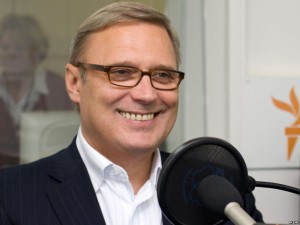
According to the testimony of the former deputy head of the Ministry of Property, which is at the disposal of rucriminal.info, at one of the meetings, the prime minister threatened him with dismissal if he did not show promptness. Moreover, they explained to Gusev that the dachas were intended for Kasyanov himself.
So that Gusev would not be timid, the deputy director of the FSO Protsenko was sent to support him. Together, the two of them began to summon Chigirinsky, de Bouar and other interested persons to their place, and by means of “psychological pressure” forced them to refuse a long-term lease. All this was accompanied by constant calls to Gusev from the head of the secretariat of the Prime Minister Merzlikin, who was interested in how things were going with Sosnovki and demanded that the process be speeded up.
Most of all, de Bouer and Chigirinsky resisted, who wanted to get some preferences from the release of the dachas from the encumbrance. As a result, the tenants discussed the entire financial component with representatives of Alfa-Bank and agreed on compensation in amounts ranging from $700,000 to 1 million euros. With the joint efforts of officials and Alfa-Bank, in October 2003, the tenants were "moved" from Sosnovki. But here a new problem arose. The FSO was in no hurry to transfer these objects from its subordination. As a result, Merzliki literally “cut off” the phones of the leadership of the FSO, demanding to expedite the execution of the government’s order. The haste was terrible - the prime minister already guessed that his days in this post were numbered. When the issues with the FSO were resolved, it was time for privatization.
According to the testimony of witnesses who turned out to be at rucriminal.info, representatives of Alfa-Bank, in a hurry, through a “related” structure, assessed state dachas, after which in December 2003 and January 2004 they were put up for auction. Only affiliated structures took part in the auction with Alfa Bank. Mikhail Fridman himself confessed to this during interrogation. As a result, Sosnovka-3 went to LLC Veltex for 10.1 million rubles, and Sosnovka-1 for 11.1 million rubles to LLC Amelia. Later, during the investigation, it was found that the budget did not receive 186.4 million rubles from the Sosnovka-3 deal, and 190.6 million rubles from the Sosnovka-1 deal. This is how the prices for state dachas were underestimated. And their market value in general is about $ 250 million. After all, we are talking about entire complexes. "Sosnovka-1" includes 26 properties located on 11.5 hectares of land, and "Sosnovka-3" - 23 properties located on 5.6 hectares. Both cottages have individual exits to the Moscow River.
Kasyanov was just impatient to occupy Suslov's former state dacha. In February 2004, Kusov, a representative of Alfa-Bank, called de Boir, who was still living at the state dacha, and said that Kasyanov wanted to personally inspect Sosnovka-1. True, he wants to do this in the absence of the current owners. Therefore, to begin with, the prime minister limited himself to an external inspection of his future possessions.
And soon Kasyanov was removed from his post. In March 2004, de Bouar left Sosnovka-1. According to the testimony of an FSO officer guarding the dacha, soon the prime minister personally arrived there together with the builders and discussed with him for a long time how the building should be rebuilt.
Officially, the state dacha was transferred to Kasyanov only in July-September 2004. Then Amelia, with the help of a number of agreements, including a loan agreement, transferred Sosovka-1 to the Art Group company, established by Kasyanov and his wife. It is clear that the former prime minister did not pay any money.
And in 2005, the Prosecutor General's Office opened a criminal case on the fact of a scam with state dachas. Gusev and a number of petty officials were charged. The investigation has been going on for six years, but they are in no hurry to close it. After all, you can always refresh him and recall past deeds to Kasyanov, who is now actively presenting himself as an oppositionist. According to lawyers, based on the materials collected, he can safely be charged with at least part 2 of Article 286 of the Criminal Code of the Russian Federation (abuse of power). This part of this article is serious, the statute of limitations for it is ten years and it will expire only in 2014.
Rucriminal.info cites excerpts from the most interesting testimonies of witnesses and defendants in a high-profile case. They perfectly show how things were done at the top of the Russian government in the 90s and early 2000s.
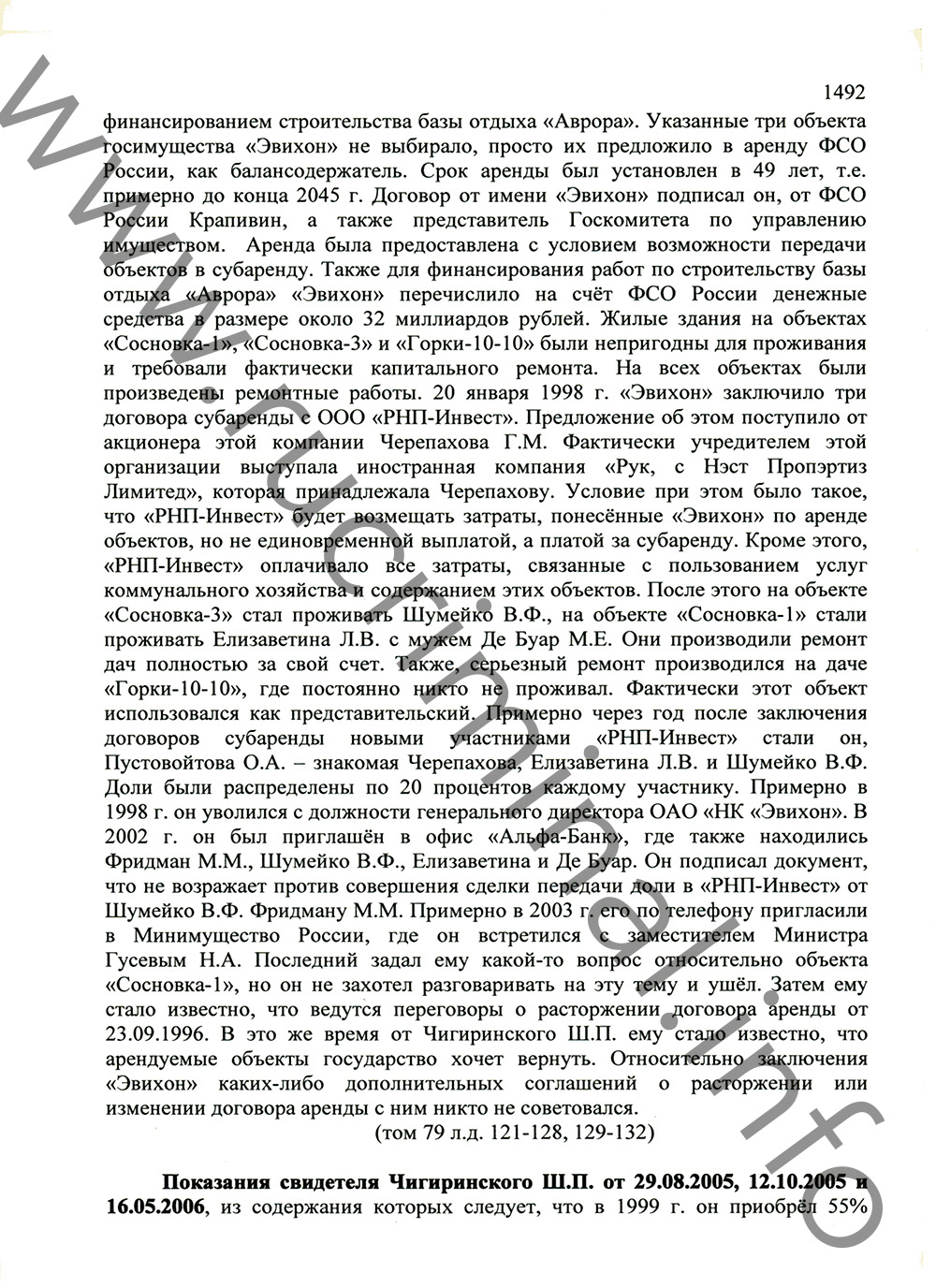
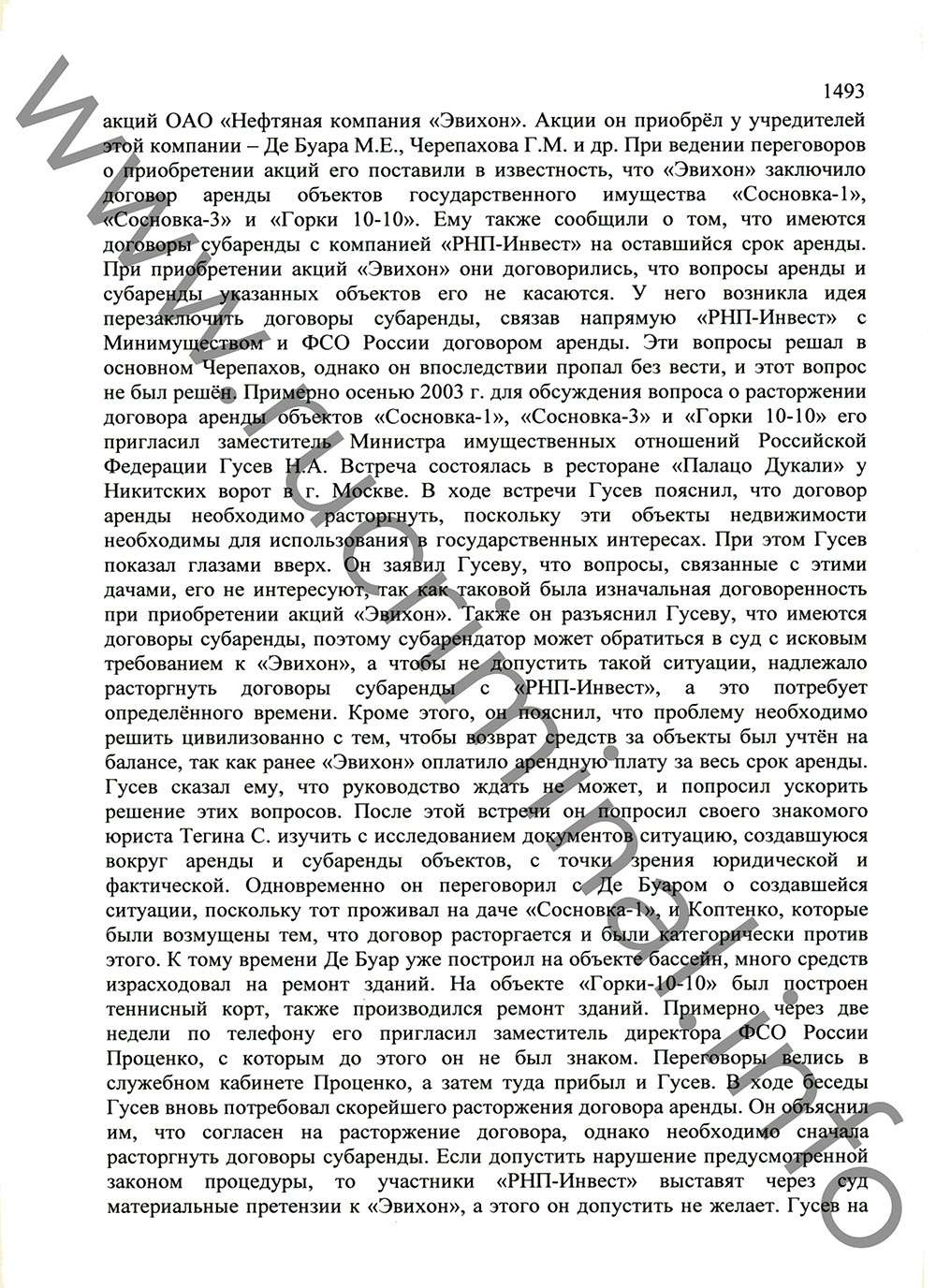
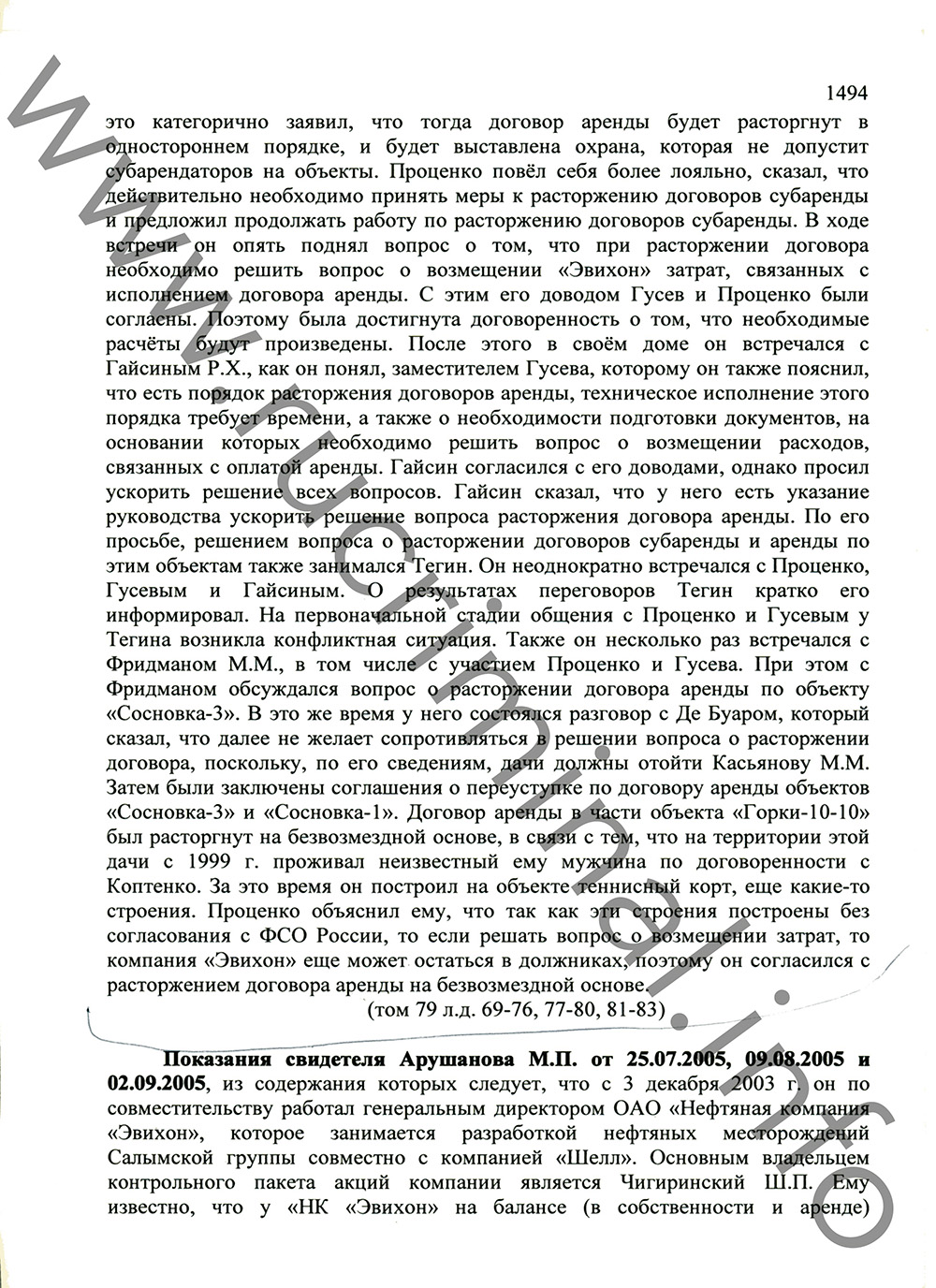
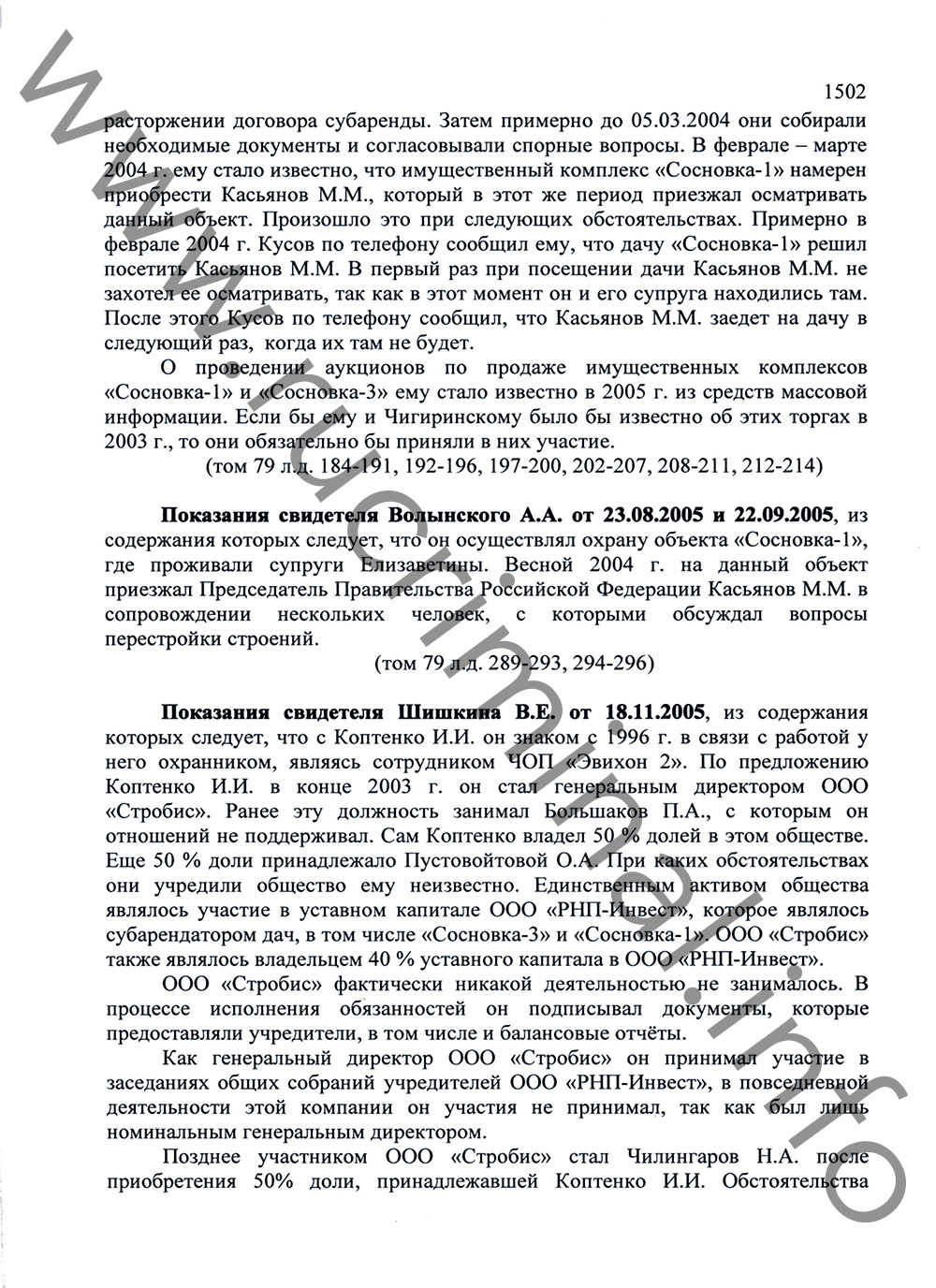
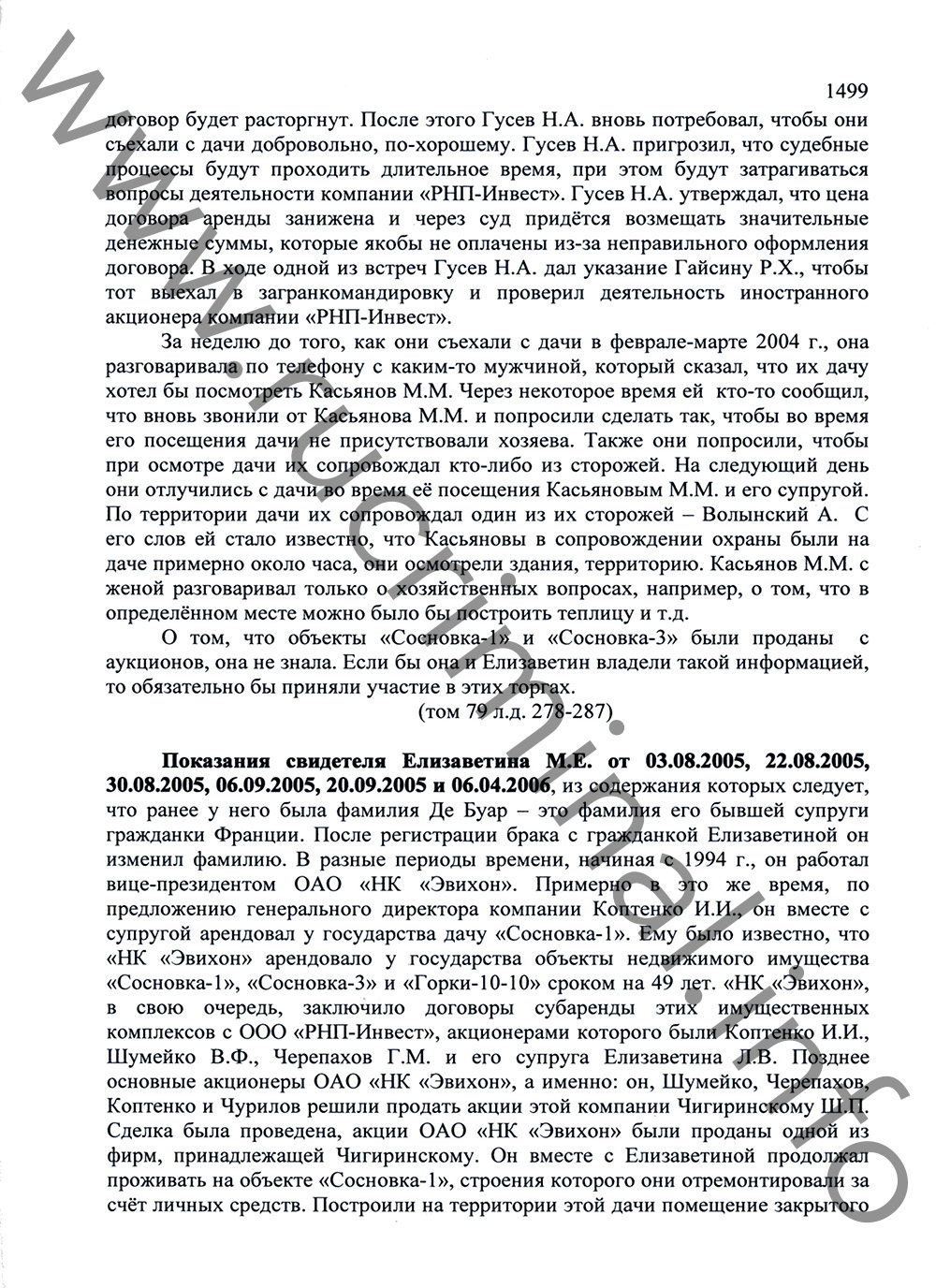
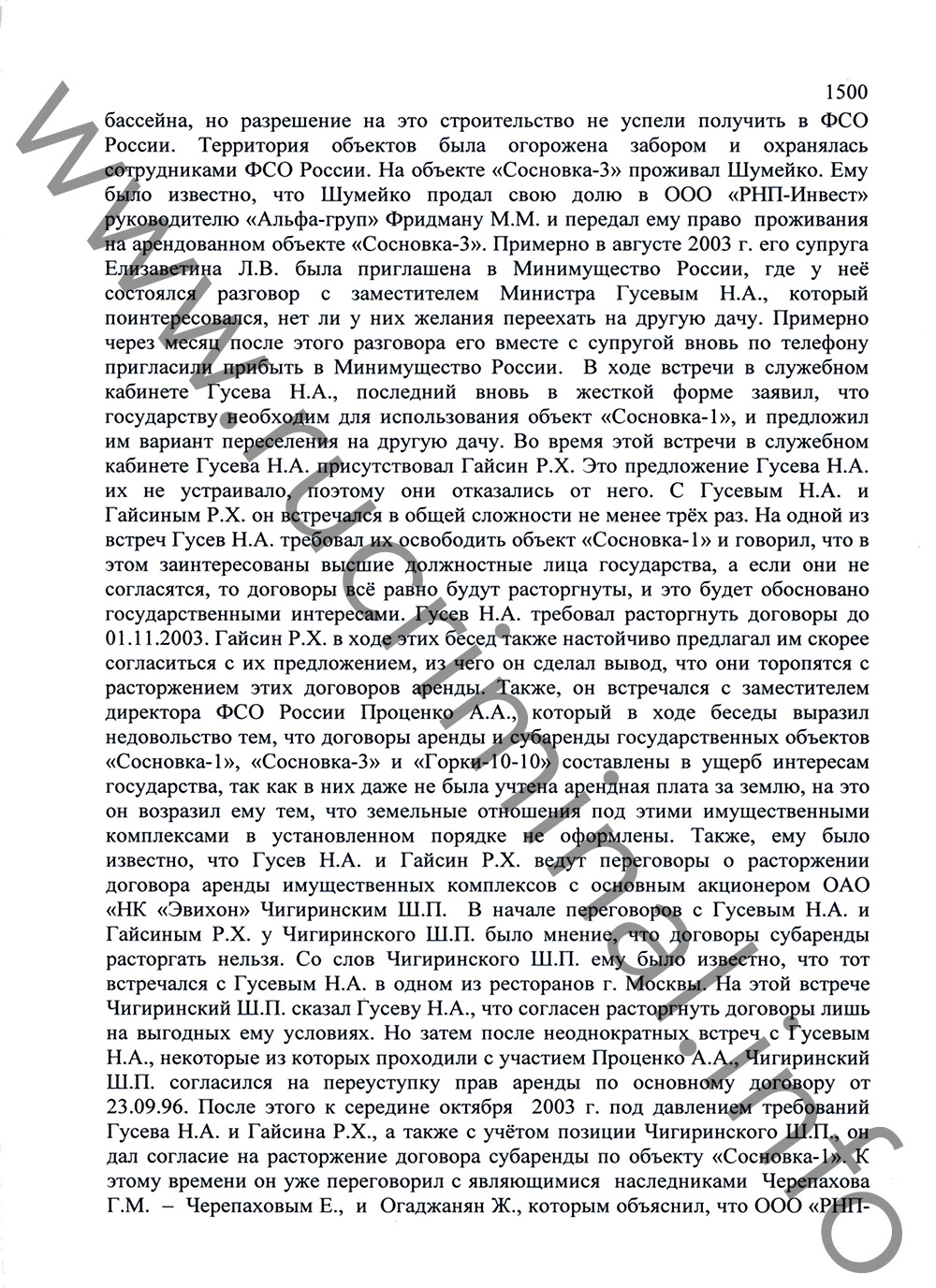
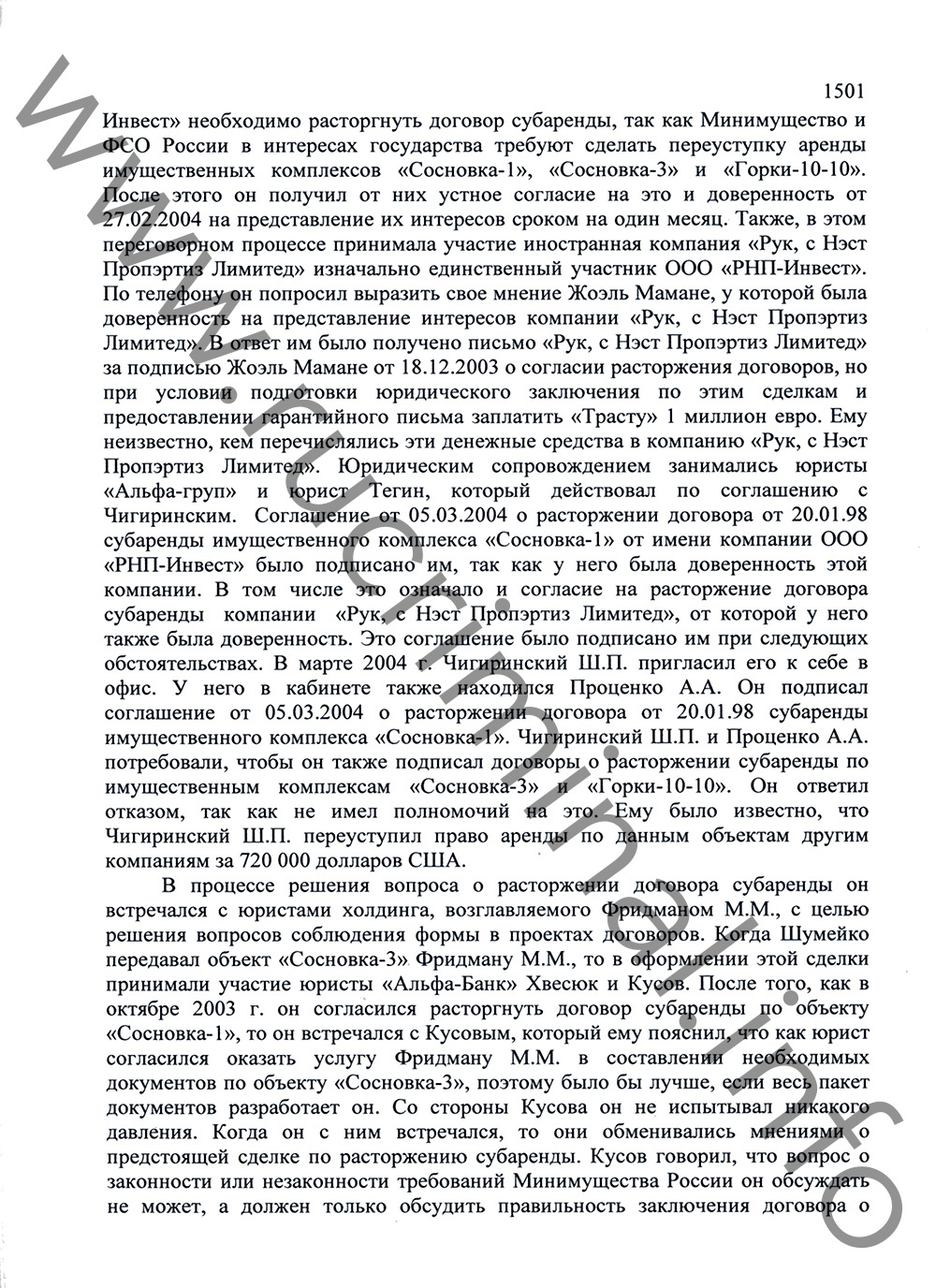
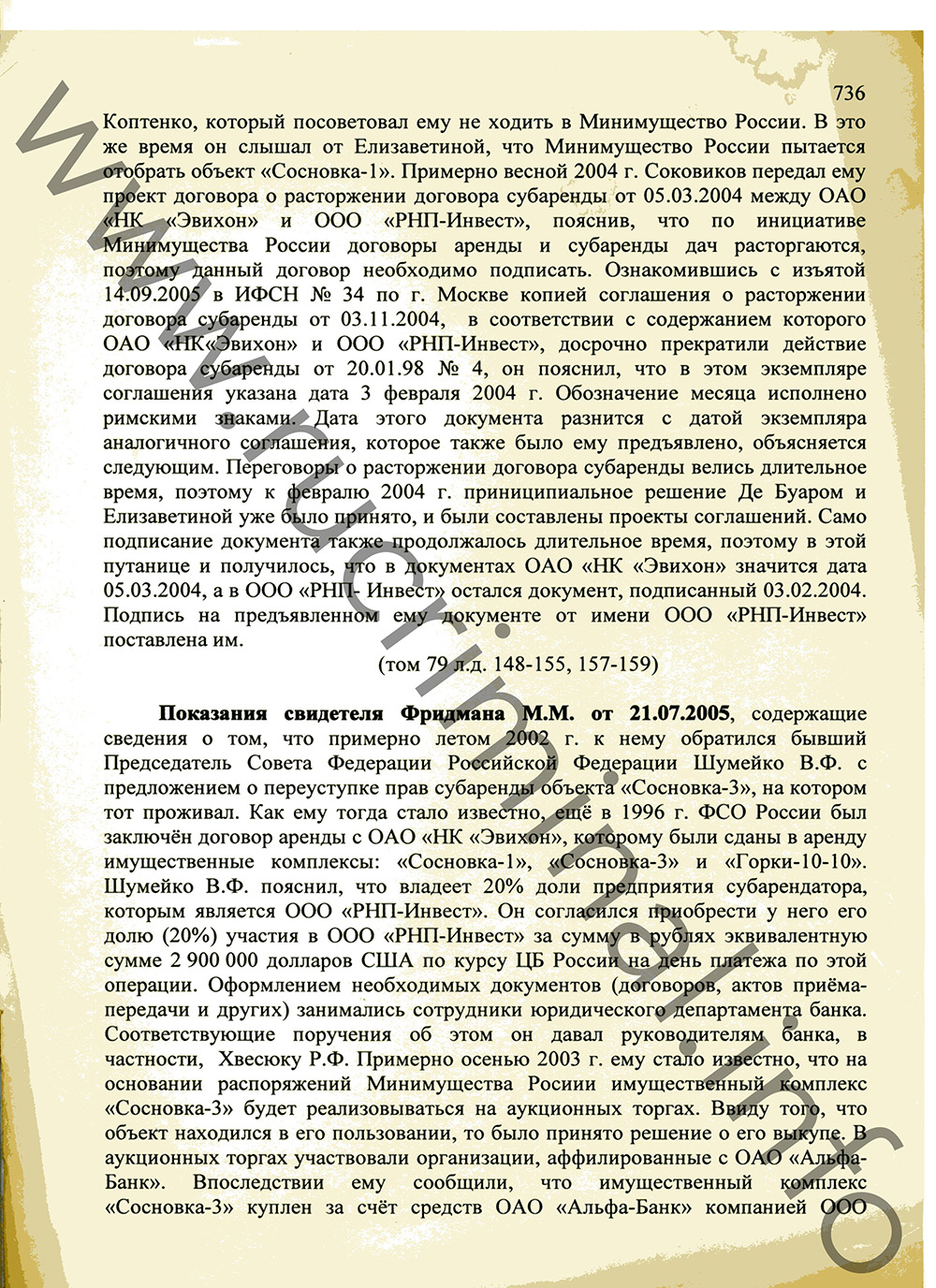
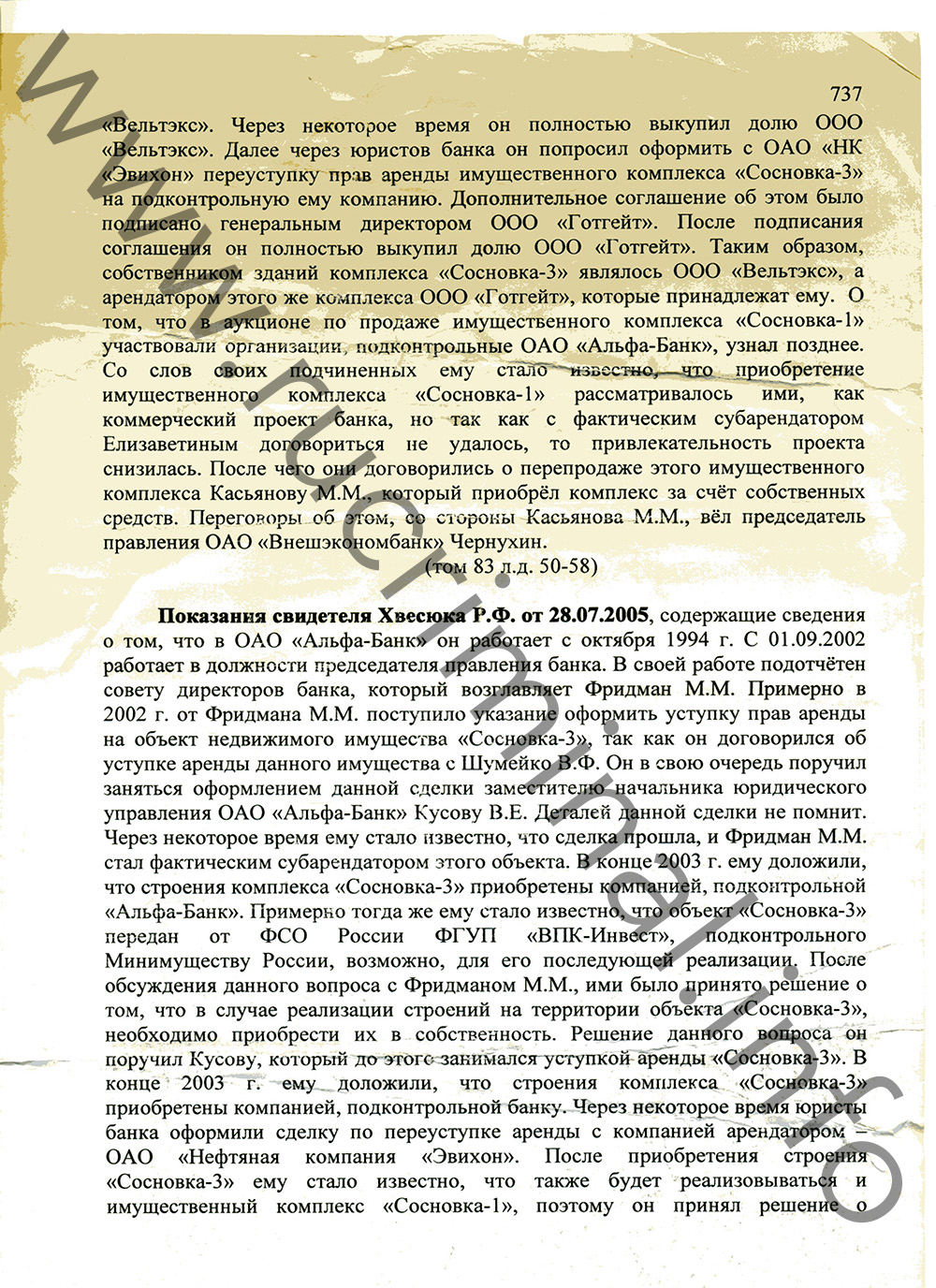
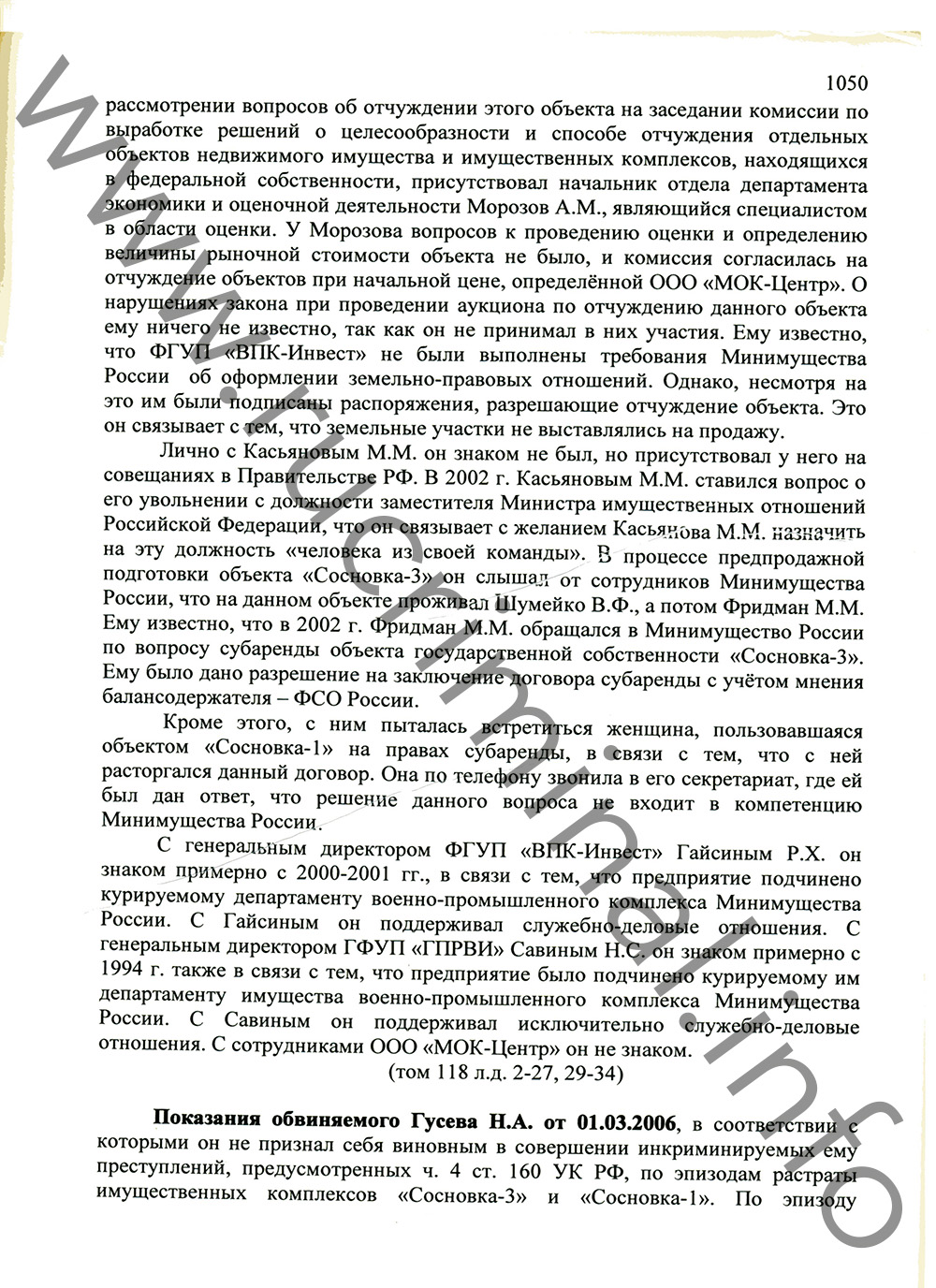
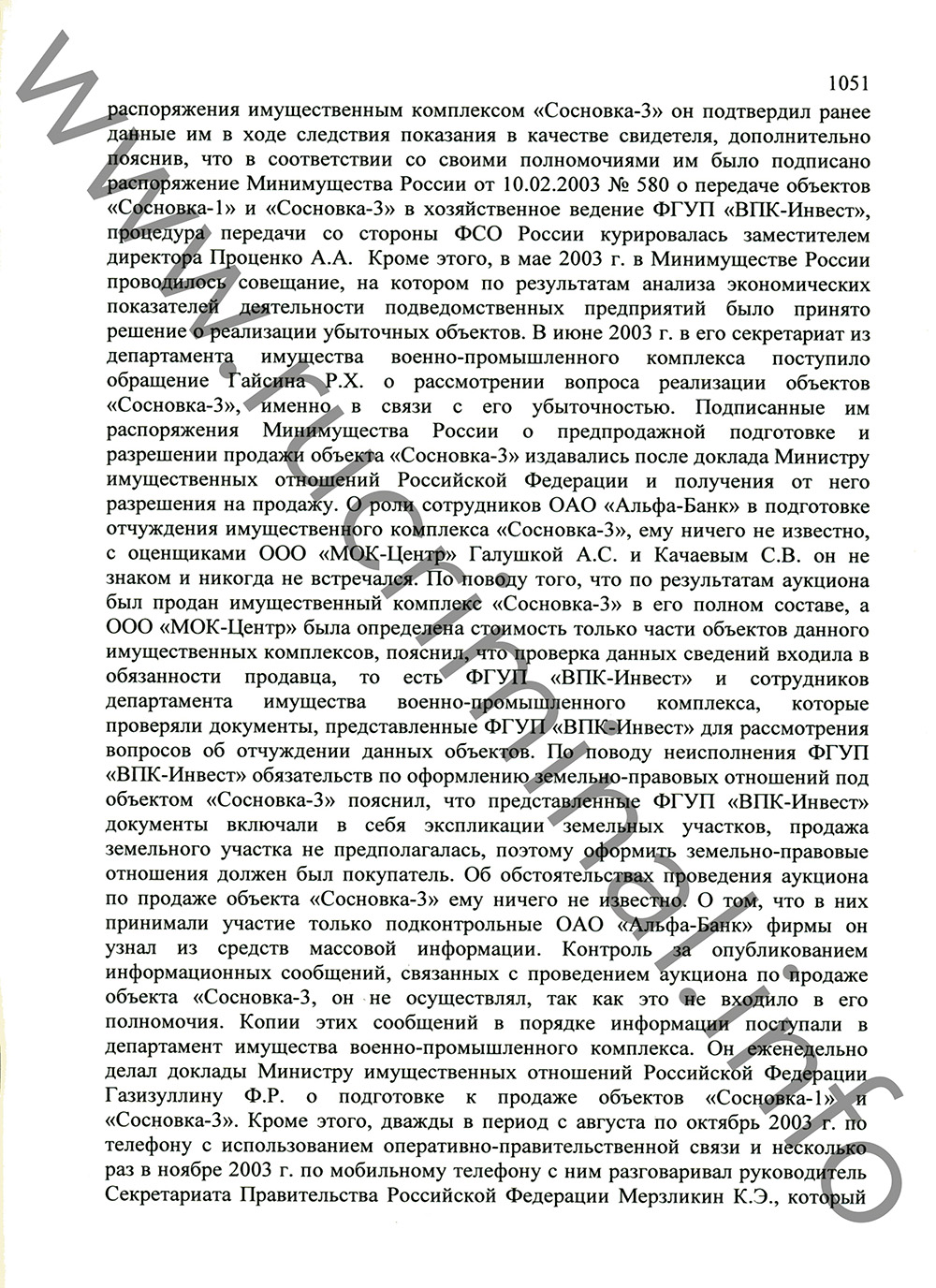
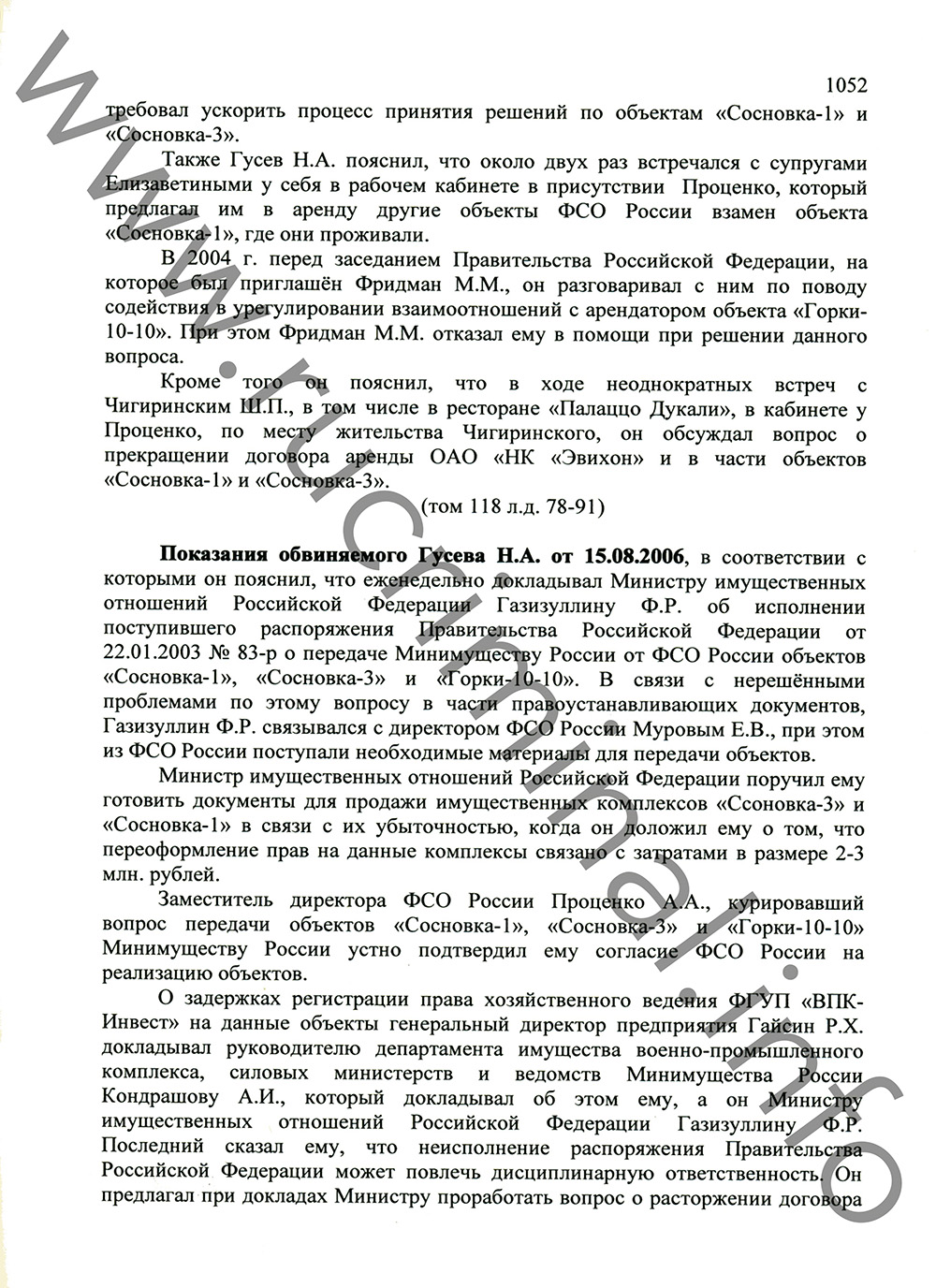
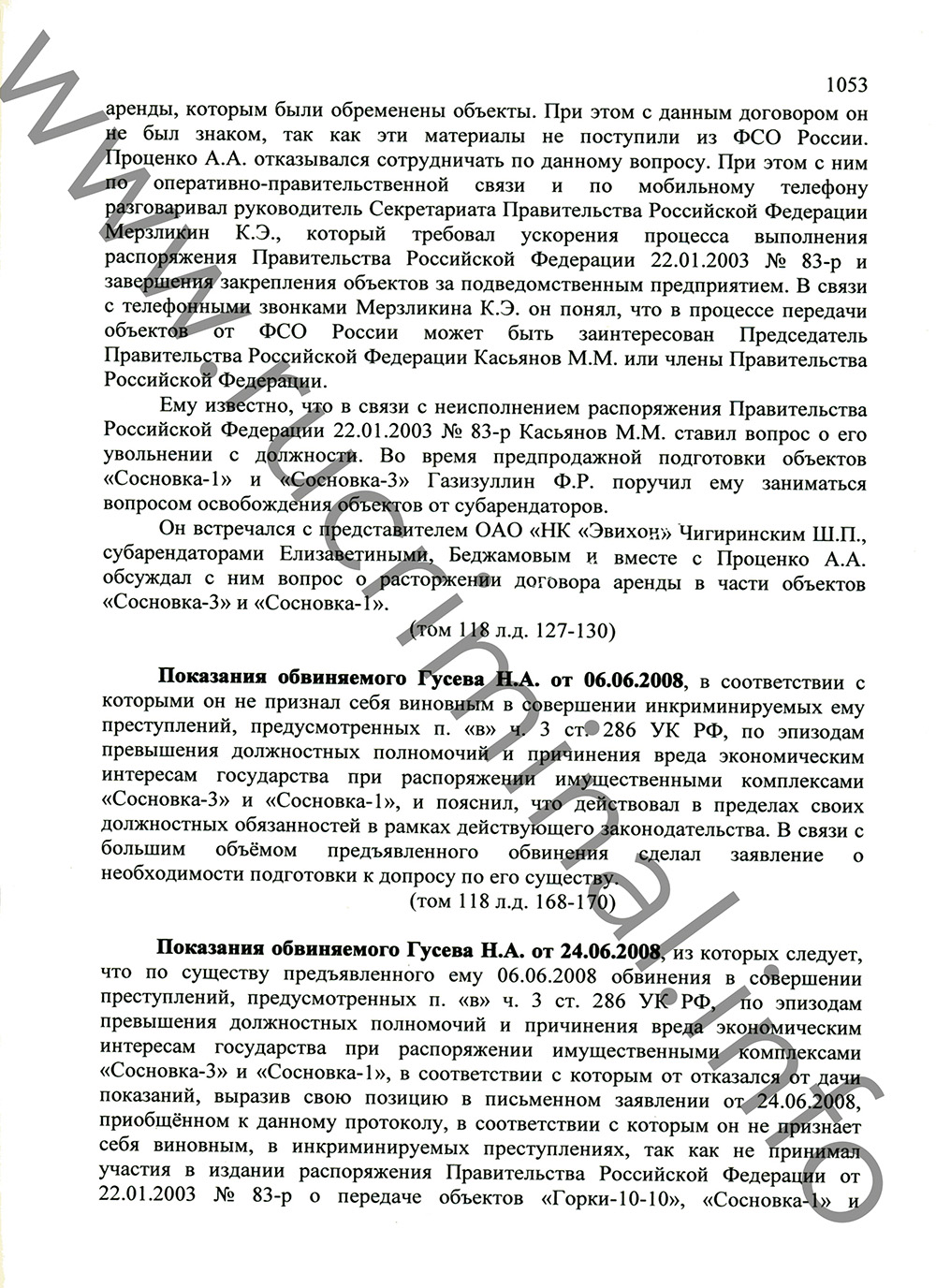
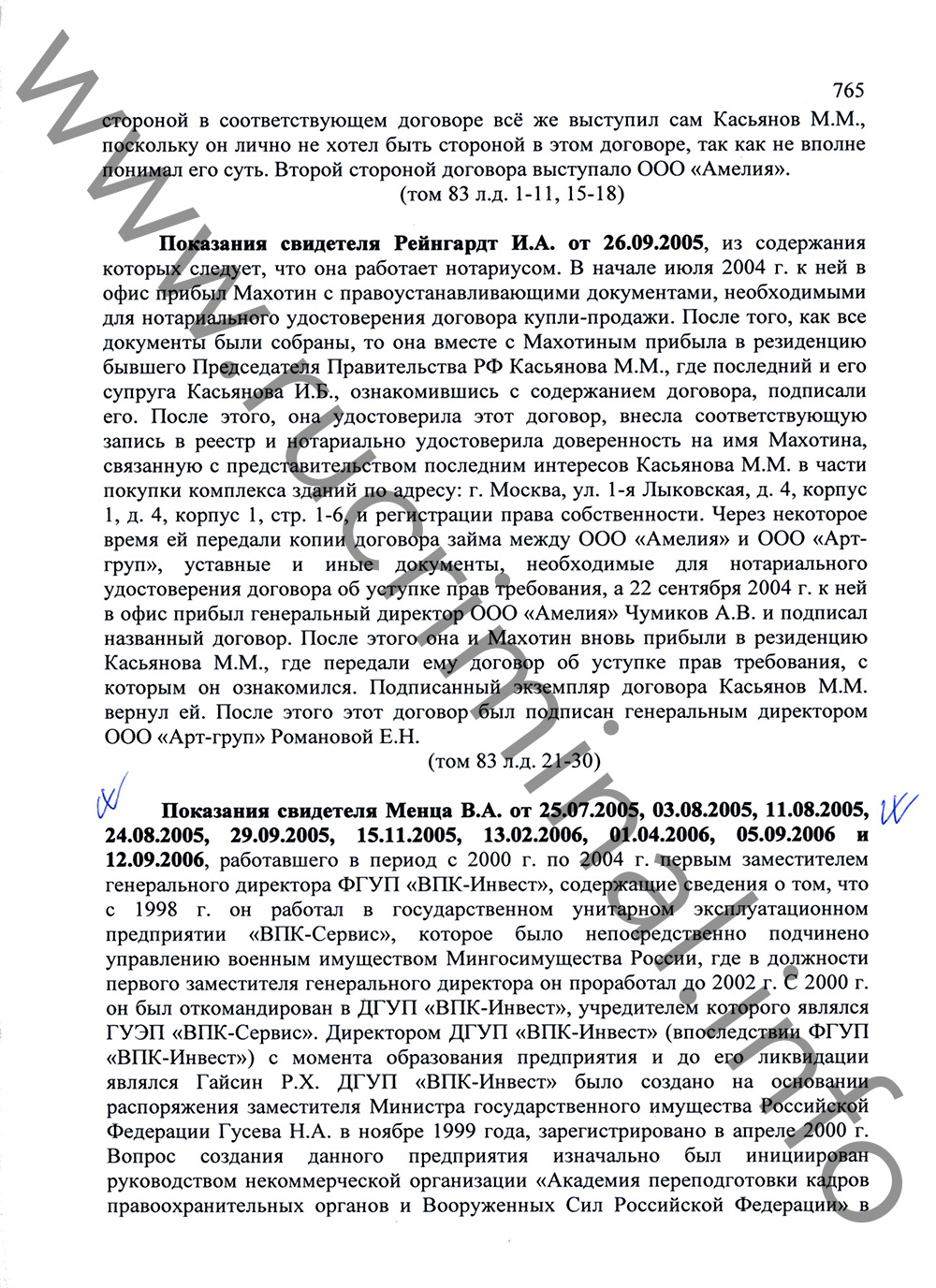
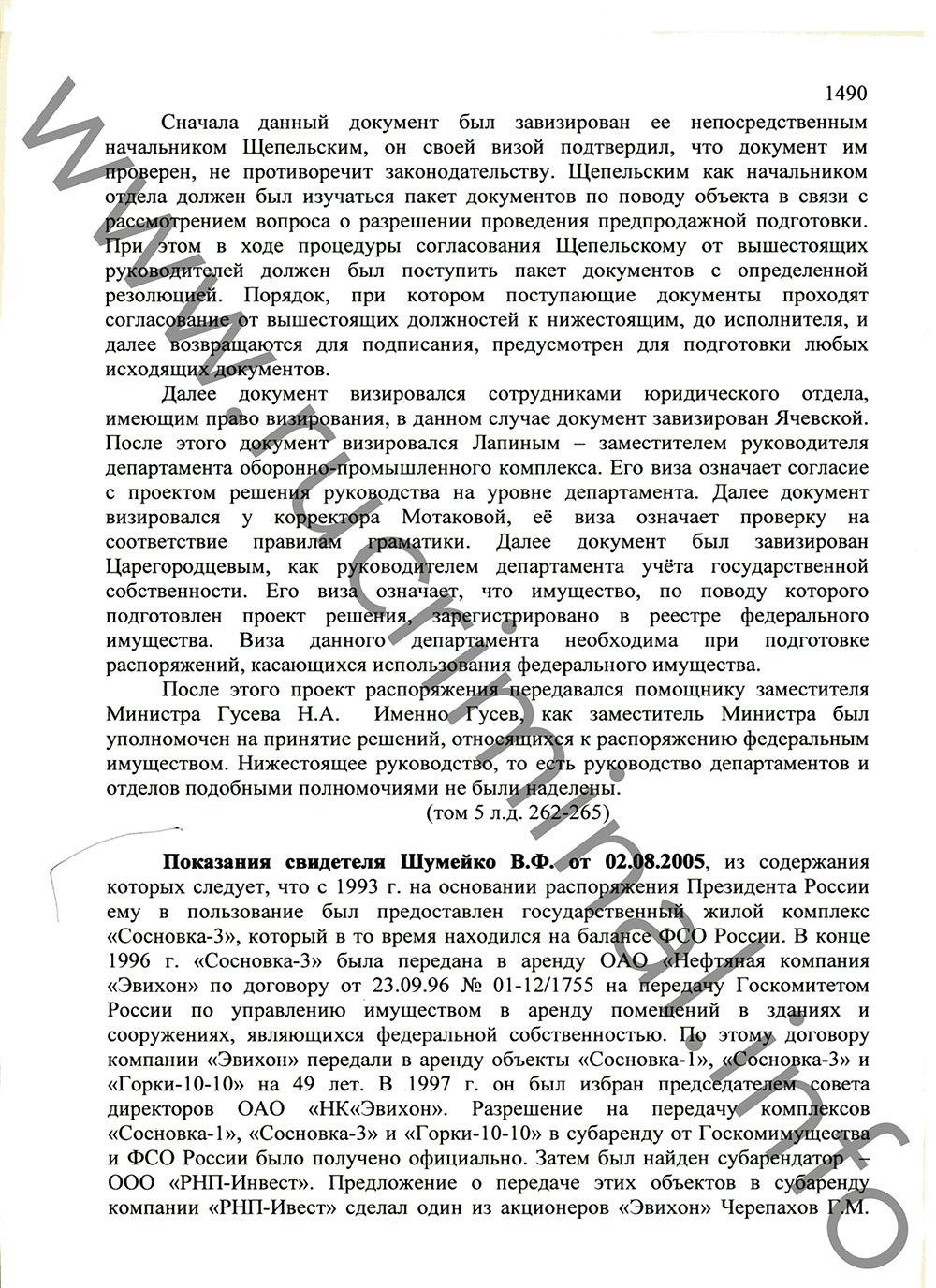
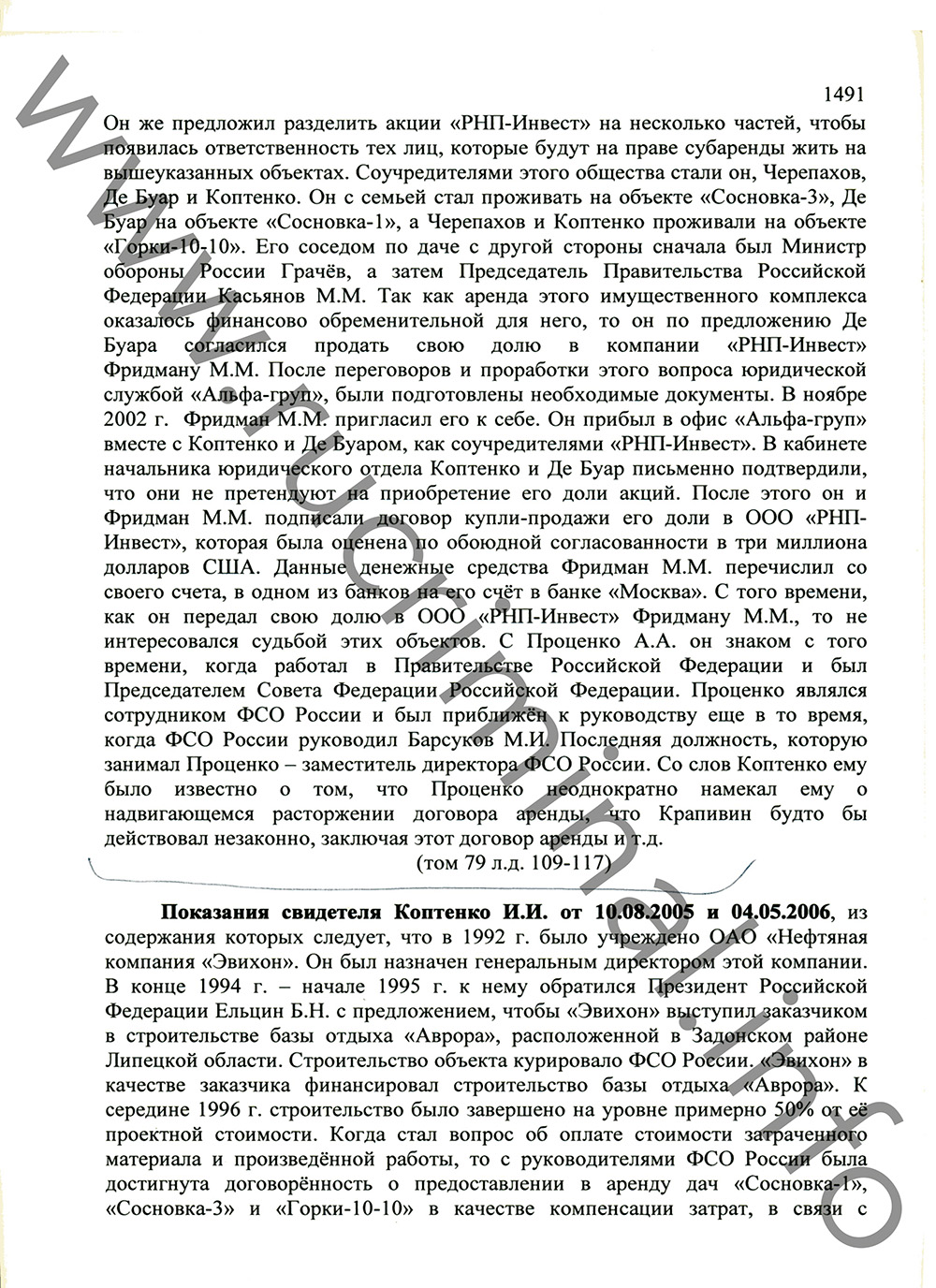
To be continued
Timofey Grishin
Source: www.rucriminal.info






